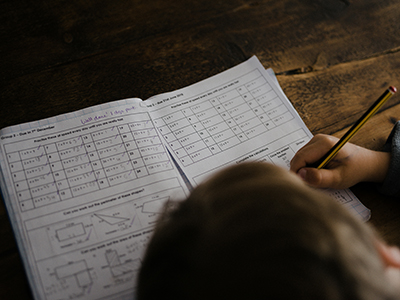Intergenerational Perspectives on Health Disparities
Academic Testing and Genetic Factors in Autism
 What can the academic performance of the siblings of those with Autism spectrum disorder (ASD) tell us about the disorder’s genetic component? Research has shown that the broad autism phenotype (BAP)— personality features and language abilities that resemble ASD characteristics without its functional impairments—is found among parents of people with ASD. In the Journal of Autism and Developmental Disorders, communication studies researcher and IPR associate Molly Losh, doctoral student Janna Guilfoyle, and their colleagues
What can the academic performance of the siblings of those with Autism spectrum disorder (ASD) tell us about the disorder’s genetic component? Research has shown that the broad autism phenotype (BAP)— personality features and language abilities that resemble ASD characteristics without its functional impairments—is found among parents of people with ASD. In the Journal of Autism and Developmental Disorders, communication studies researcher and IPR associate Molly Losh, doctoral student Janna Guilfoyle, and their colleagues
investigate whether the BAP is also found among siblings, and if so, what are its features? Using standardized test records, the researchers compared 29 non-ASD siblings of people with ASD to a control group of 88 individuals who did not have a brother or sister with ASD. Additionally, previously gathered data about 43 parents of people with ASD and 23 individuals with ASD were included to connect academic performance and clinical behavioral characteristics. The results show no differences in third-grade reading or math scores between the siblings of people with ASD and the control group. However, the siblings of those with ASD demonstrate more differences with language use and expression, which is similar to the team’s earlier findings about the parents of people with ASD when the parents were children themselves. The analysis also finds that mothers’ BAP characteristics were more strongly connected to their children’s language abilities than those of fathers. Academic achievement tests, which are widespread, may provide more insights into ASD’s genetic causes and inheritability.
The Impact of Father Involvement on Future Testosterone Production
Testosterone, or the male reproductive hormone, influences how men devote effort towards reproduction or caregiving. Research has shown that testosterone levels decline in new fathers, which encourages greater caregiving, but also that testosterone responses vary across cultures based upon parenting norms. In the Proceedings of the National Academy of Sciences, IPR anthropologists Christopher Kuzawa, Thomas McDade, and their colleagues investigate whether having a father present during a son’s childhood affects the son’s testosterone levels as an adult and as a father. The study examined a group of 966 men in the Philippines using data from the CLHNS, an ongoing birth-cohort study begun in 1983. Fathers of each adolescent boy in the study were defined as present or not present during their children’s upbringing. The sons were also asked who they felt was most responsible for their upbringing. Later, after the adolescents became fathers themselves, their testosterone levels were measured. The sons with fathers who were not present during their development had higher testosterone levels after becoming fathers than those whose fathers were present. These results suggest that the experience of adolescent boys with their fathers has lasting impacts on the production of testosterone, which could have intergenerational effects on their own parenting behavior. Kuzawa is the John D. MacArthur Professor of Anthropology, and McDade is the Carlos Montezuma Professor of Anthropology.